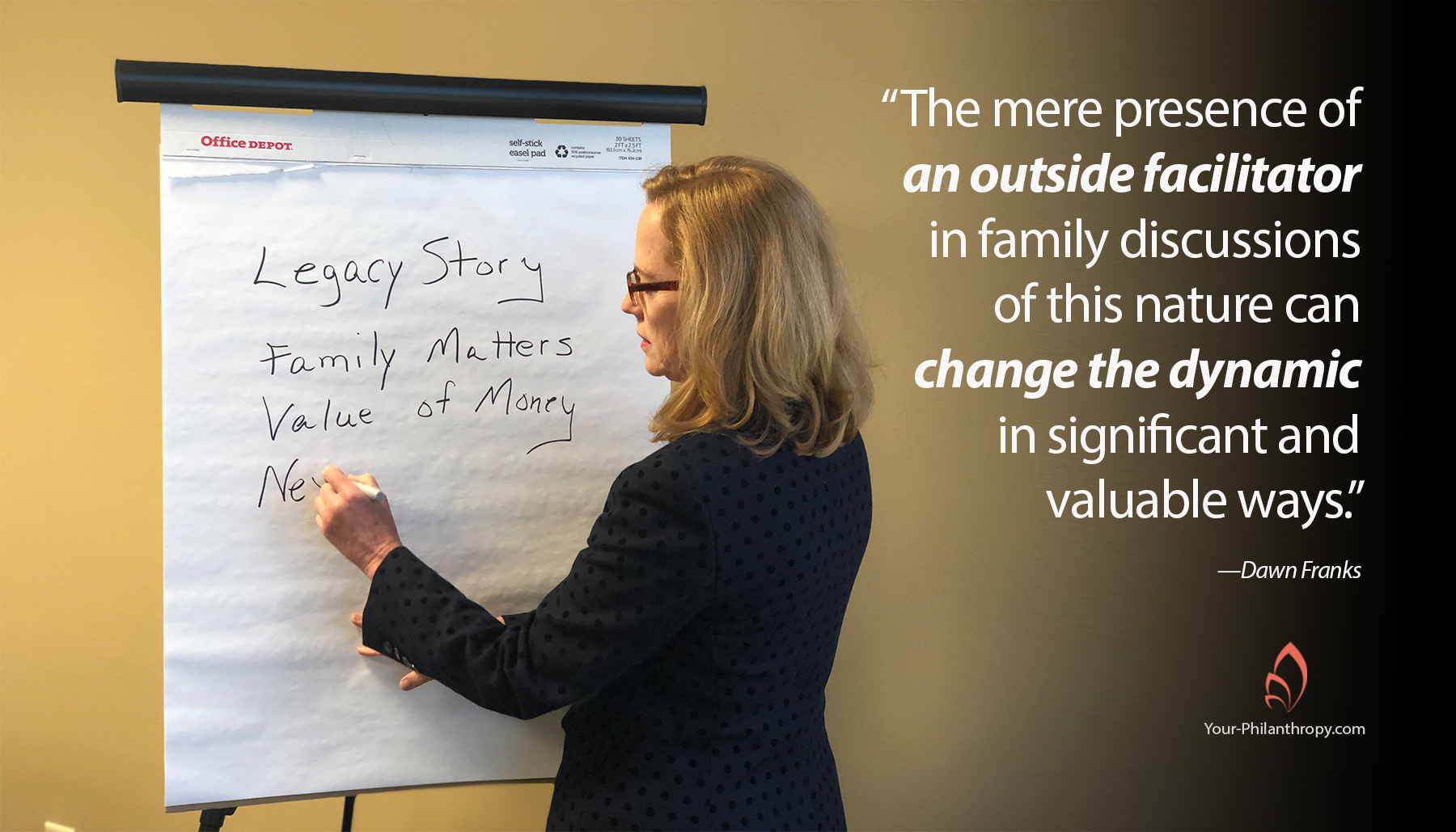“We need to talk to our kids about some of our philanthropy decisions, but we’ve never had those kinds of talks before. It’s all in our will, but we haven’t shared it with them. I think we’re late, but when is late too late? We don’t know where to start.”
You may remember the above quote from a blog I wrote not long ago. My answer was, “Where to start is at the beginning. When to start is sooner rather than later because such conversations take time and shouldn’t be rushed. It might even be more than one conversation.”
I also suggested that sometimes an outsider can facilitate a family conversation to increase your chance of success. Maybe you’ve considered the idea, and reviewed your friends, clergy, professional advisors, or even distant family but are still not sure how to find the right person to facilitate.
Here are my five tips to help you identify the best person to help with the conversation:
Keeps a safe distance. The more of an outsider perspective they can bring to the conversation, the higher the likelihood of success. The views and feelings of each family member are important, and someone with distance is more likely to honor each one individually and objectively, as well as within the family.
Listens well. This person should listen more than speak and not try to answer questions before someone finishes a question. They should ask lots of questions that only the family can answer.
Isn’t a know-it-all. Your facilitator doesn’t know everything and isn’t an expert with all the technical answers. You need someone willing to help any family member find the answers they need. A strong facilitator knows when to bring in the right advisors to be part of the conversation.
Takes notes. I know this might seem odd, but it’s important to value – and remember – the perspective of every family member in the conversation. Notes often help for both the immediate and future discussions, and to help everyone know exactly what was said.
Is trustworthy, honest, confidential. I put these three together on purpose because I don’t think they can be separated. If the person you ask to facilitate a family conversation doesn’t have all three in spades, you have the wrong person.
You can see this is not a technical list and is actually fairly simple. If you are ready to take the first step, we invite you to take a step with us at Your Philanthropy. It is my personal experience that the mere presence of an outside facilitator in family discussions of this nature can change the dynamic in significant and valuable ways. I think you’ll be surprised about the possibilities and results.
This is my list. What would you add? Share your thoughts with us. We’d like to learn together.
Like it. Use it. Share it. Comment below.


You’ve formed a great list here. I would add that a good facilitator knows how to ask great questions. I’ve seen individuals and groups make significant progress from well-timed and clear questions.